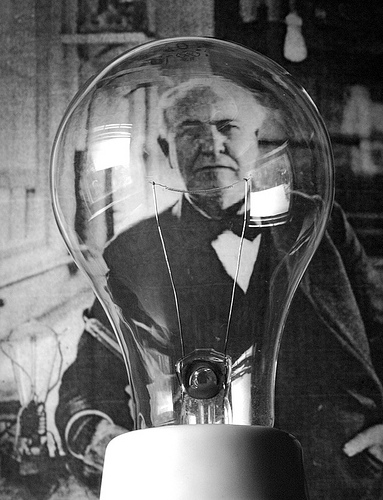In 1976, Gail Jennes of People magazine conducted a Q&A with Michael L. Dertouzos, who was the Director of the Laboratory for Computer Science at MIT. He pretty much hit the bullseye on everything regarding the next four decades of computing, except for thinking Moore’s Law would reach endgame in the mid-’80s. An excerpt:
Question:
Will computers be widely used by the average person in coming years?
Michael L. Dertouzos:
We don’t see technical limitations in computer development until the mid-1980s. Until then, decreased cost will make computers smaller, cheaper and more accessible. In 10 or 15 years, one should cost about the same as a big color TV. This machine could become a playmate, testing your wits at chess or checkers. If a computer were hooked up to AP or UPI news-wires, it could be programmed to know that I’m interested in Greece, computers and music. Whenever it caught news items about these subjects, it would print them out on my console—so I would see only the things I wanted to see.
Question:
Will they transmit mail?
Michael L. Dertouzos:
We are already hooked into a network spanning the U.S. and part of Europe by which we send, collect and route messages easily. Although the transmission process is instant, you can let messages pile up until you turn on your computer and ask for your mail.
Question:
Do you foresee computers as a tool for the average child?
Michael L. Dertouzos:
It already is for some. When my 6-year-old son Leonidas visited MIT, he couldn’t understand why all the secretaries had “computers.” He’d seen my computers before he’d seen their typewriters.
Question:
Will the computer eventually be as common as the typewriter?
Michael L. Dertouzos:
Perhaps even more so. It may be hidden so you won’t even know you’re using it. Don’t be surprised if there is one in every telephone, taking over most of the dialing. If you want to call your friend Joe, you just dial “JOE.” The same machine could take messages, advise if they were of interest and then could ring you. In the future, I would imagine there could be computerized cooking machines. You put in a little card that says Chateaubriand and it cooks the ingredients not only according to the best French recipe, but also to your particular taste.
Question:
Will robots ever be heavily relied upon?
Michael L. Dertouzos:
Robots are already doing things for us—for example, accounting and assembling cars. Two-legged robotic bipeds are a romantic notion and actually pretty unstable. But computer-directed robot machines with wheels, for example, may eventually do the vacuum cleaning and mow the lawn.
Question:
How might computers aid us in an election year?
Michael L. Dertouzos:
Voters might quickly find out political candidates’ positions on the issues by consulting computers. Government would then be closer to the pulse of the governed. If we had access to a very intelligent computer, we could probe to find out if the guy is telling the truth by having them check for inconsistency—but that is way in the future.
Question:
Should everyone be required to take a computer course?
Michael L. Dertouzos:
I’d rather see people choose to do so. Latin, the lute and the piano used to be required as a part of a proper upbringing. Computer science will be thought of in the same way. If we can use the computer early in life, we can understand it so we won’t be hoodwinked into believing it can do the impossible. A big danger is deferring to computers out of ignorance.•


